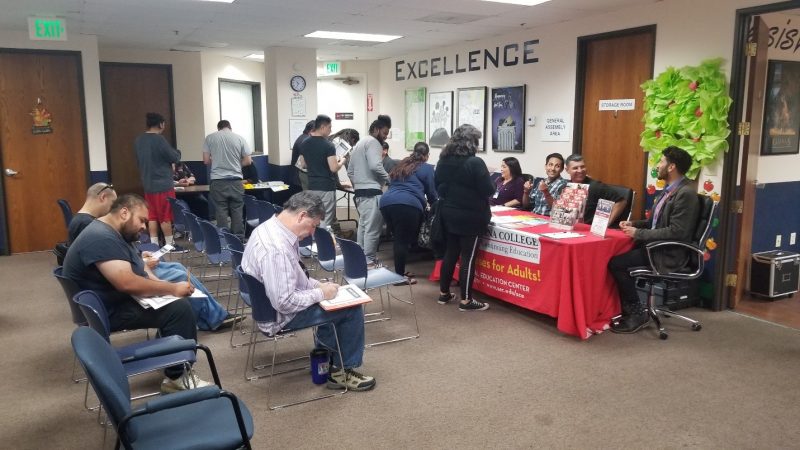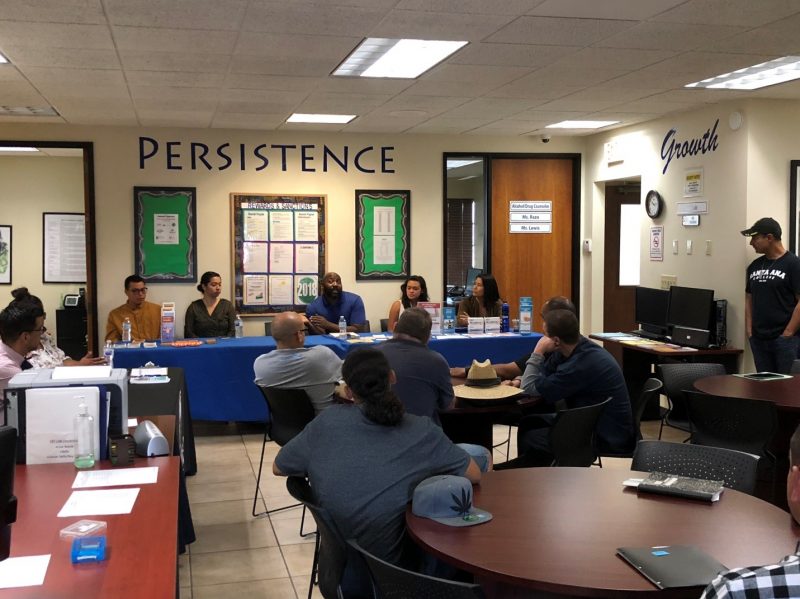Whether an individual is released from incarceration and put on parole or sentenced to probation as an alternative to jail or prison, access to community resources plays an important role in their successful reentry to society. While cognitive behavioral treatment and other evidence-based programs address criminal thinking and behavior, there are many more factors to consider when it comes to recidivism risk. It’s not uncommon for an individual to need specialized resources for housing stability, job security, health services or mental health treatment, vocational services along with many other types of social services, to transition back their community and avoid criminal behavior.

Although reentry programs provide guidance and accountability, reentrants still rely on their community for support in different ways. Take employment as an example: participants can learn how to put a resume together and interview for a job—or even get their GED. But what if their community doesn’t have businesses willing to hire them? This is where Community Connections come in. Community Connections is a program encouraging individual GEO Reentry centers to partner with local businesses and organizations that can help participants get the supplemental or ongoing resources they need.
“Some of these very individualized and specialized resources are not in our scope-of-practice on purpose,” Shreveport Day Reporting Center Program Manager Justin Jones explained. “For example, with issues of domestic violence, we have to refer out to other organizations for sure. It’s not in our contract, and some facilities are better equipped.”
Partnerships developed in the Community Connections Program address a wide range of social services—including those dealing with safety and well-being, like domestic violence—but also extend to areas such as legal assistance, vocational training, inpatient treatment and others. These partnerships expand the reentry program’s ability to provide at-risk participants with the resources they need for a successful transition back to their community.
Each Community Connections Program is tailored to the needs of the local reentry population, allowing program managers at each center develop partnerships that provide the right resources or care. These community-based programs help participants work through environmental, financial or health challenges (along with other obstacles) that may have otherwise interfered with their ability to focus on work in the reentry program.

Groups that partner with local GEO Reentry centers can benefit in different ways. Businesses who hire program participants provide financial stability and a sense of purpose while also gaining new employees who can contribute to the business itself and the local economy as a whole. Other organizations offering more specialized social services, like mental health counseling or affordable housing, can help participants overcome complex challenges that may normally be inaccessible or unaffordable. As a result, these groups assert their position as a stabilizing force in the community, which can secure funding and local support that helps them continue their work. In many cases, Community Connections partners can work with GEO Reentry facilities to create volunteer opportunities for participants, which benefits the organization, the reentrant and the greater community.
Most GEO Reentry centers host specific days each month where community service providers part of the Community Connections program come to the reentry programs to present to program participants. This formal effort is valuable for exposing participants to services they may not know exist in the community. GEO Reentry staff are constantly looking for new providers to involve in the Community Connections program.
“Our participant’s success would not be possible without the cooperation and acceptance of the community,” Chicago Heights Reentry Service Center Program Manager Luke Lynch said. “That is why it is important to not only utilize existing resources but also give back to the community.”
Many program managers work with their Community Connections partners to find new volunteer opportunities, supporting the community and empowering participants. Community service gives participants a sense of belonging and a feeling of personal investment in where they live. It can also give individuals a greater sense of pride in their reentry process, as it can create a feeling of making amends to the community.
“Volunteering and giving back to the community gives our participants a sense of belonging and is a great step towards becoming a positive force in the world,” Lynch said. “Additionally, no organizations have unlimited resources so the time and energy our participants and staff volunteer is always greatly appreciated and allows these community resources to have an even greater impact.”
